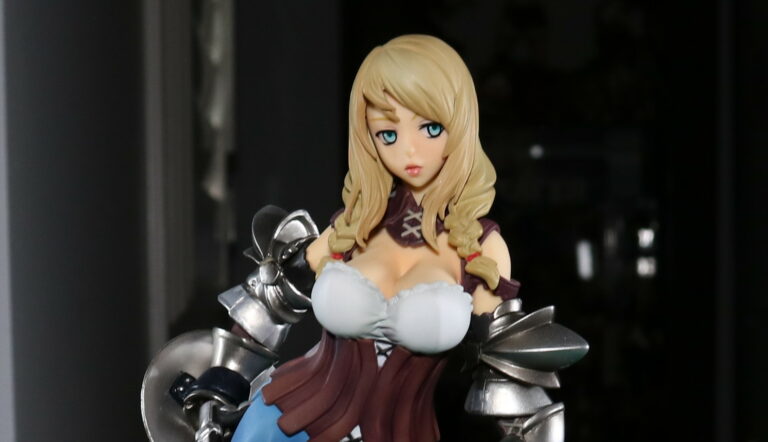The Five Star Stories Appendix 1
Appendix part 1: Dedicated to fatima
Okay, simply put. There was no way that I could put what I wanted within my initial review of the Five Star Stories simply because I wanted to avoid spoilers (Not that I did a good job of that.) and that there were just so much to talk about.
You can consider this piece a supplement to the review but with some spoilers.
In this piece, titled “Dedicated to fatima”, I am going to list various types of relationships fatimas have with their masters. Some of their relationships are just normal. Some are a little (okay, very) odd. Some are just wrong.
While what I am going to write is full of spoilers, without proper context though, it’s more of knowledge than actual spoilers.
Now, I am going to use the English scan if available to help providing more context. If not, I will just take pictures of my Japanese version of F.S.S.
The first, the normal ones.
By “normal ones”, I mean the good ol’ a good husband and a good wife type of relationship.
It seems most headliner + fatima fall into this category. Especially for fledging knights, their fatimas become literally everything simply because a fatima is basically a computer. Their fatimas take care of every mundane stuff for them so that all they can worry about is fighting and maintaining good mood.
Coupled with a pretty appearance, a good body, and unwavering loyalty toward their masters, you can see why many knights (headliners) fall for them hard.
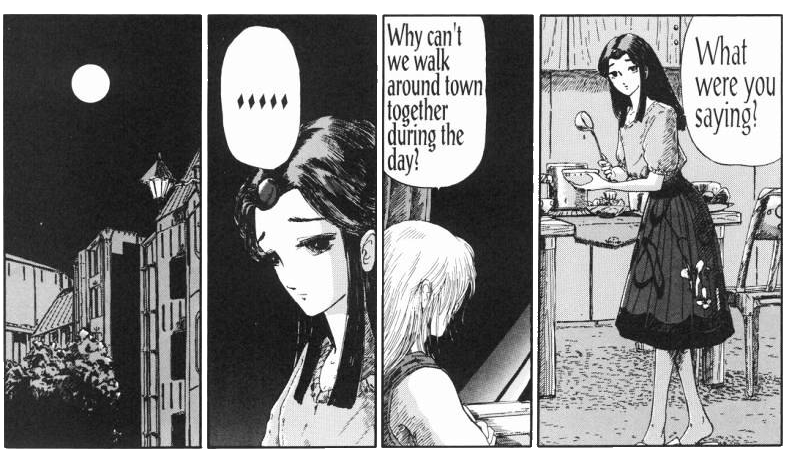
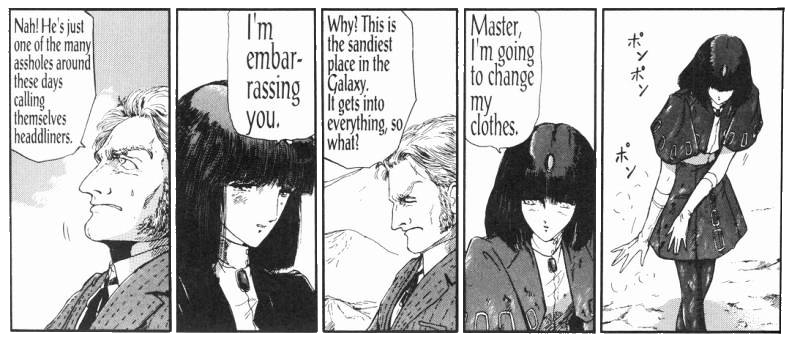
Fatimas may call them “master”, but I get a pretty good feeling that we are seeing conversations of couples.
Sadly, some fall for them so hard to a point that, acquiring a new fatima after their old ones die from a battle is utterly out of the question. They either just retire or choose to die together. I am going to list one such example here.
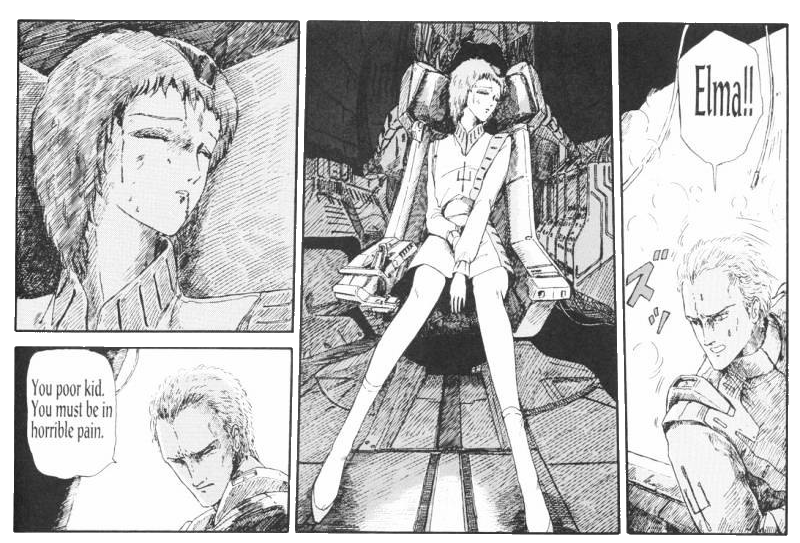
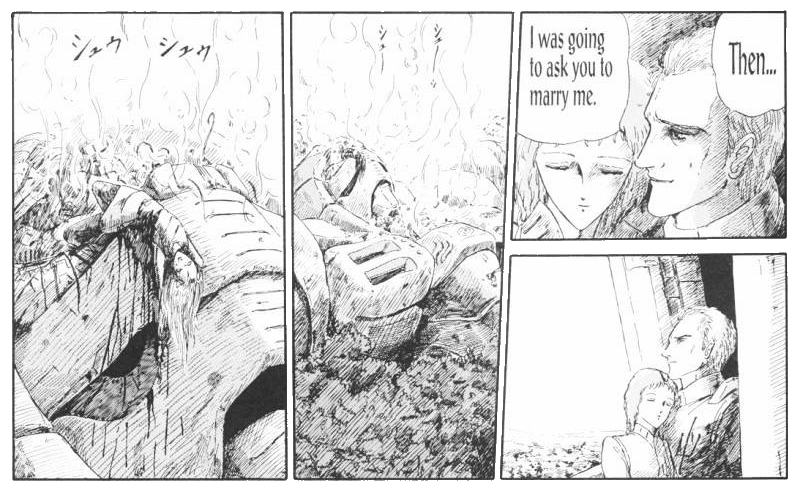
The knight here chooses to die with his fatima after refusing to treat his wound. For him, his fatima was everything. He simply couldn’t see himself going on any further with a new fatima.
His fatima was his love of his life, period.
The second, stoic ones.
Some knights maintain a certain line when dealing with fatimas. They view fatimas as robots and that they exist to serve their best interest. Such knights treat their fatimas stoically. It’s important to note here that such knights do not mistreat them. They just treat them very coldly.
The prime example of this is Decors Weiszmel, the black knight. He sees values in them clearly and believes that they do have a role. However, he never crosses a certain line. He doesn’t treat them bad but doesn’t embrace them.
Volume 14 shows this the most clearly where he gifts his fatima EST a new accessory not because he likes her but because he wants to boost her mood.
He also makes clear to his fatimas ( He has more than one. ) not to cross the line.
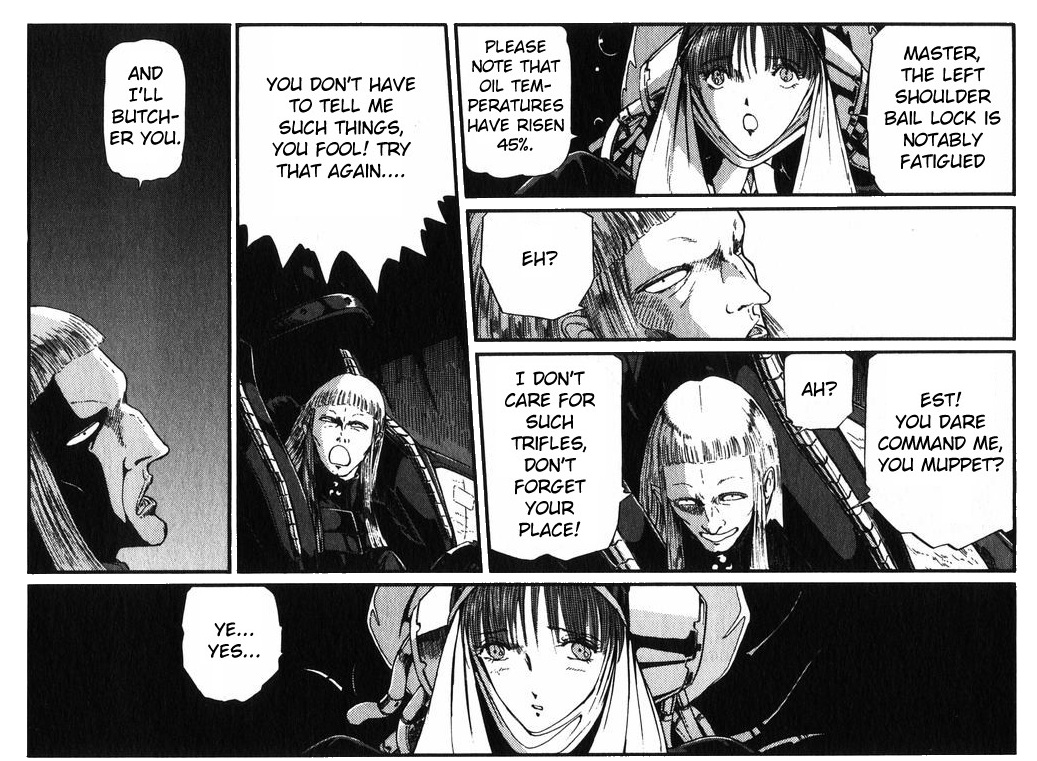
The third, weird ones.
There are some rare cases of weird knight + fatima relationships. The prime one that keeps coming up in the stories is Wascha Codante (Aisha’s little sister) and Hugtrang.
Wascha Codante is a rather weak knight which she doesn’t seem to care about too much as she loves to point out that she is only a “high school girl”. She can be considered cute, but her beauty is utterly overshadowed by her own fatima, Hugtrang who is apparently far more prettier than her according to character reactions.
Their relationship starts off very weirdly. Normally, a headliner appears in front of a free fatima, and it is down to the fatima to make a decision whether to take him/her as its master. In some cases, fatima chooses its master way before.
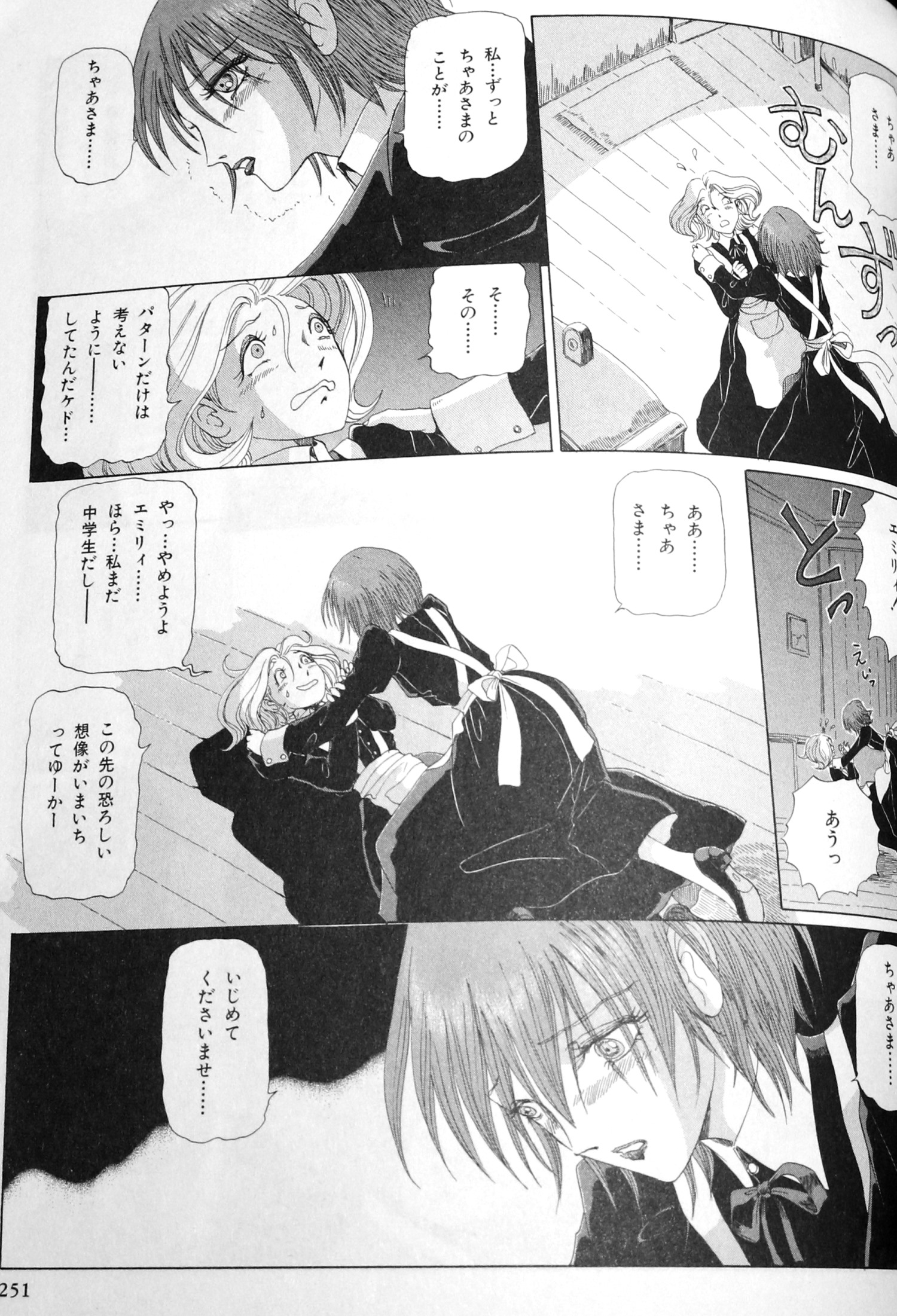
In Hugtrang’s case, she specially chooses Wascha. She even stalks her and forces her to accept her as her fatima, which Wasche accepts purely out of fear (of being raped). Well, it’s probably worth pointing out that Hugtrang is actually stronger than her. Therefore, Wascha being raped by Hugtrang is a real actual possibility.

Hugtrang is overall a mentally broken fatima. She is clearly missing a few gears in her head. It is revealed in volume 15 why she turns out the way she has. (Hint: A supersonic piece of tofu)
Many GTMs fear her actually. Even the knight of gold fears her to a point that it lets her to pilot it. Although their relationship starts off weirdly, on surface at least they are a normal headliner and a fatima.
Those two remain a rare source of comic relief in later volumes (volume 11+).
The fourth, moral compass crisis.
I am not going to add any pictures or pages for these type of relationships.
Now, a fatima’s secondary purpose is sexual intercourse, basically to please their master. Well, there is at least one male child fatima that appears in the manga. I am not going to spell it out for you.
The final one, cold turkey and a redemption arc.
Not all relationships work out. Some knights have a strong view that fatimas are nothing more than organic computers. Such knights treat their fatima harshly. They don’t care whether their fatimas break down because they can simply get new ones.
But the author has drawn an exception to these types of knights.
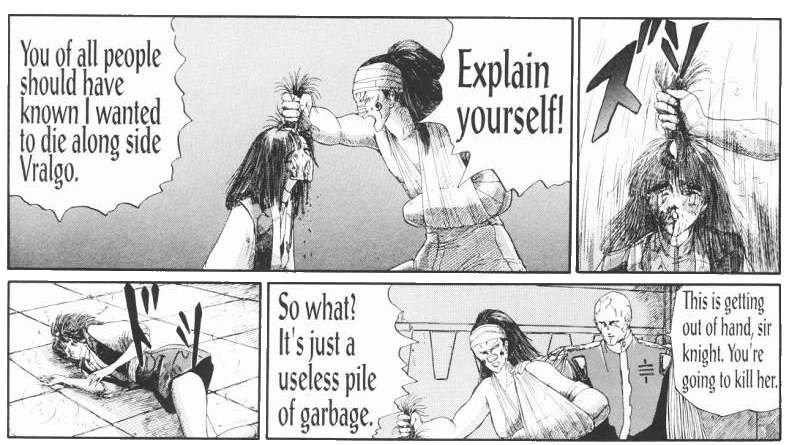
The knight’s name here is Blreno. His whole team fails their mission, and he becomes the only survivor.
Now, an interesting point here. These guys are seen as antagonists in an earlier story. They are now protagonists in this story. This is what makes F.S.S. stand out from others, the neutral takes on stories.
Long story short, when he finally gets back to his duty, he is glad to have another chance. Then below happens.
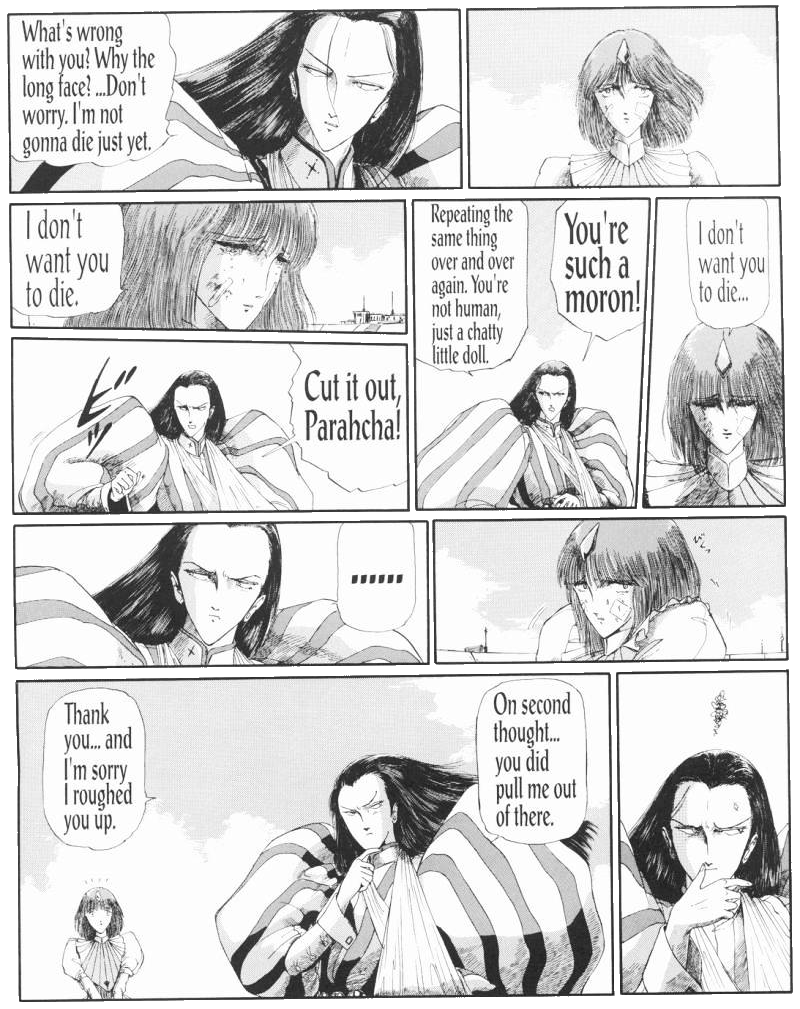
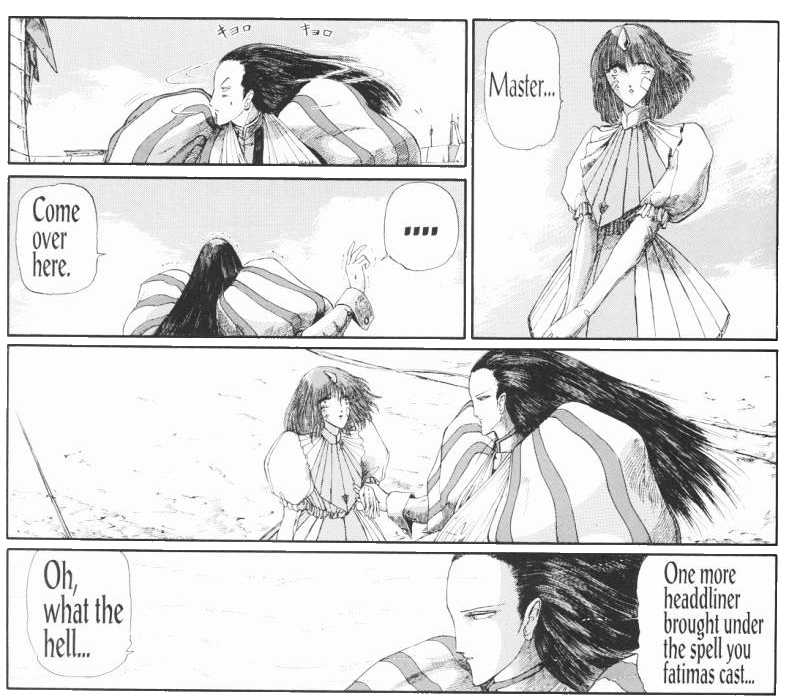
This is a redemption arc for him. It really makes me wonder though. Fatimas are programmed to be loyal. They are programmed to do whatever they can to save their master. Okay, I get that. But my bigger question is, do they ever have real feelings for their masters?
Let’s look at Bleno’s case here. His fatima cares for him clearly to a point that she is deadly afraid of him dying. All she says is, “I don’t want you to die…”
Does she mean that? From her heart? Or is she saying it because she is programmed to do? It makes me really wonder …
Closing words
On the first page of every volume, there is a quote, “Dedicated to fatima” There is no exception. From volume 1 to 16, on the very first page, there is a single quote.

“Dedicated to fatima”





